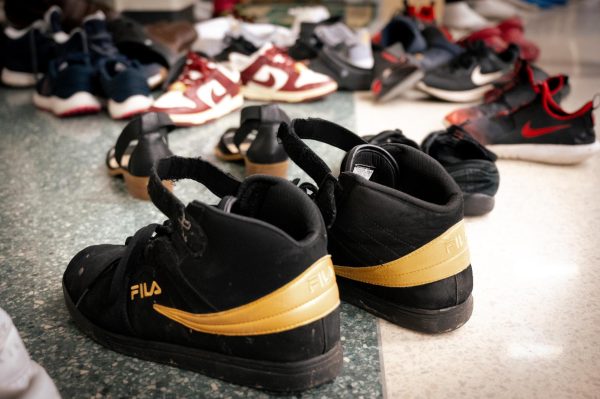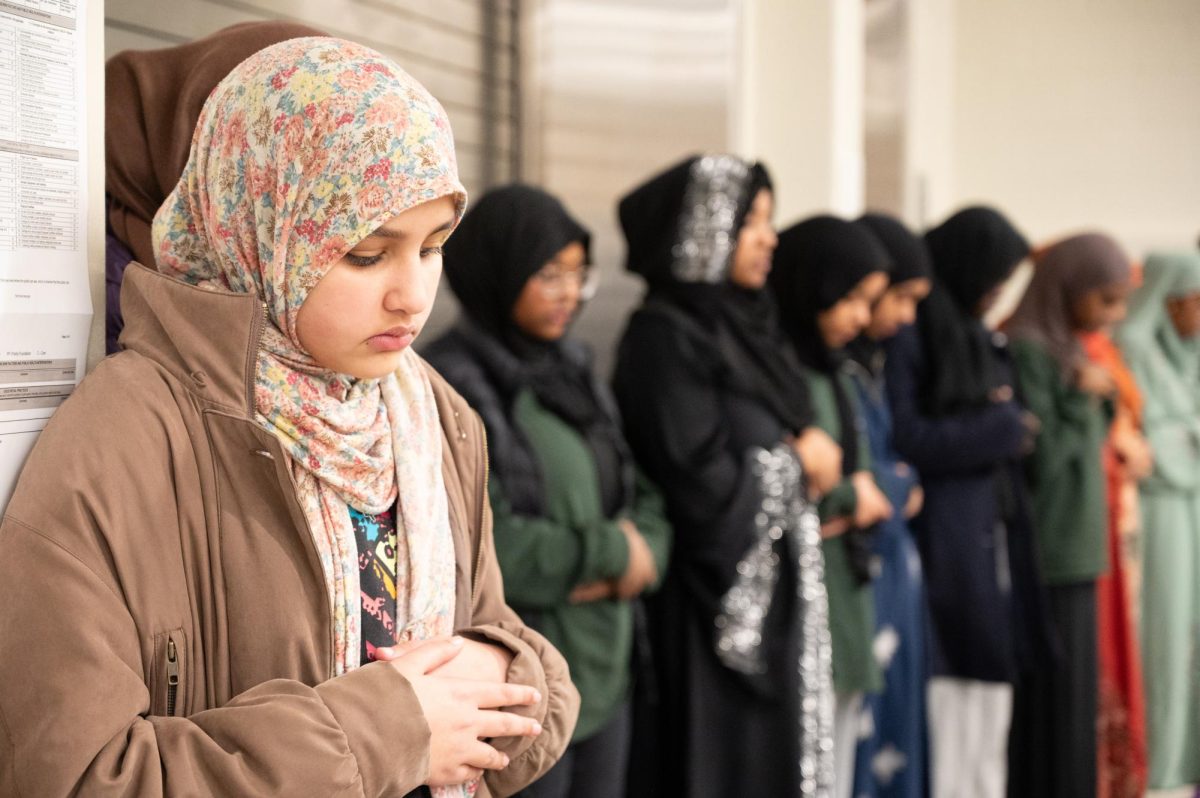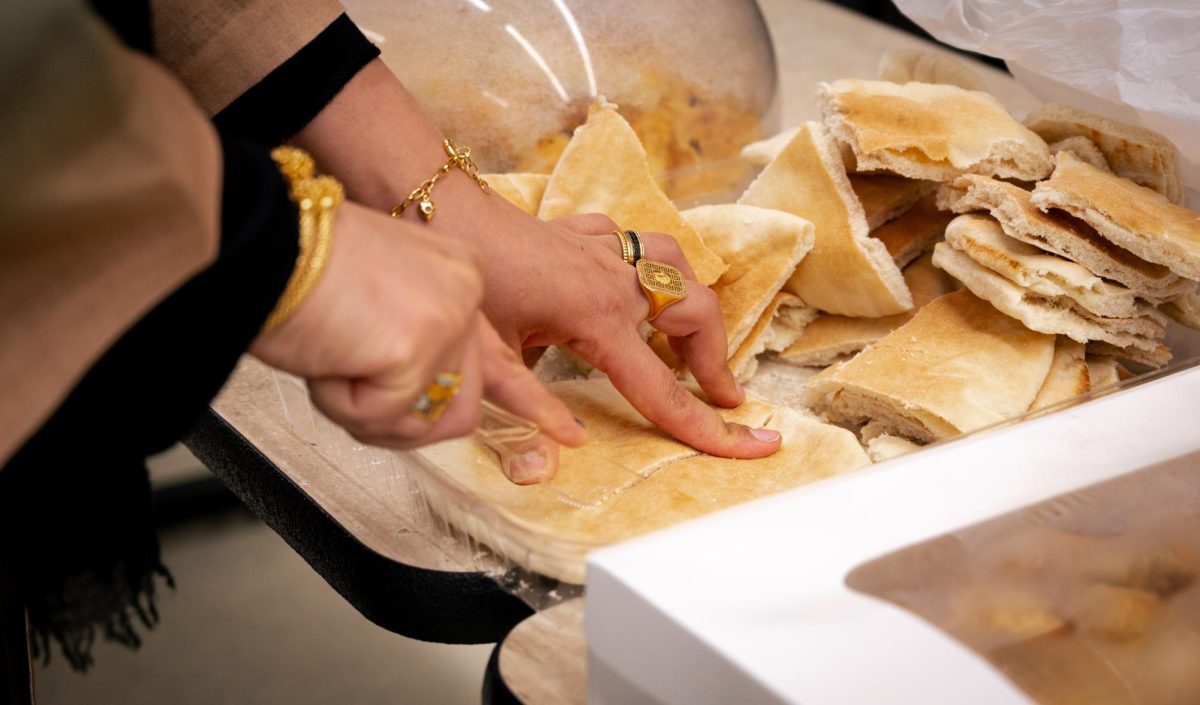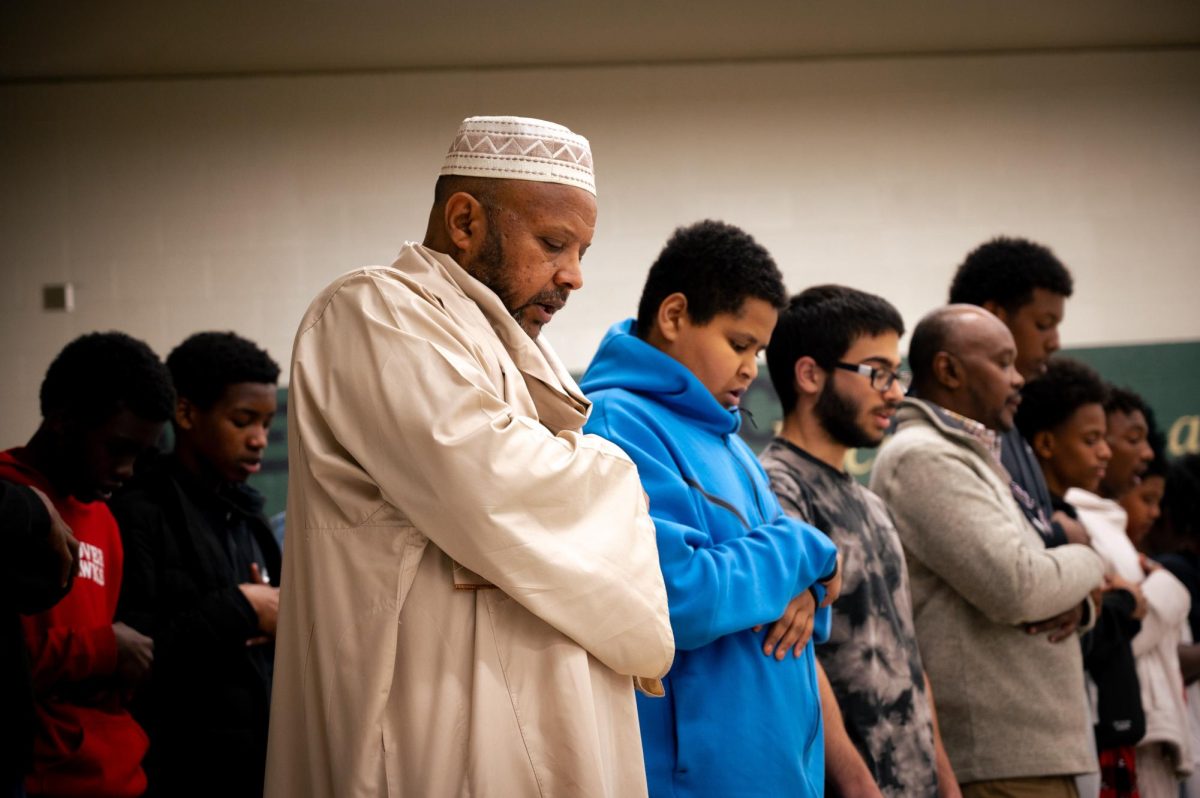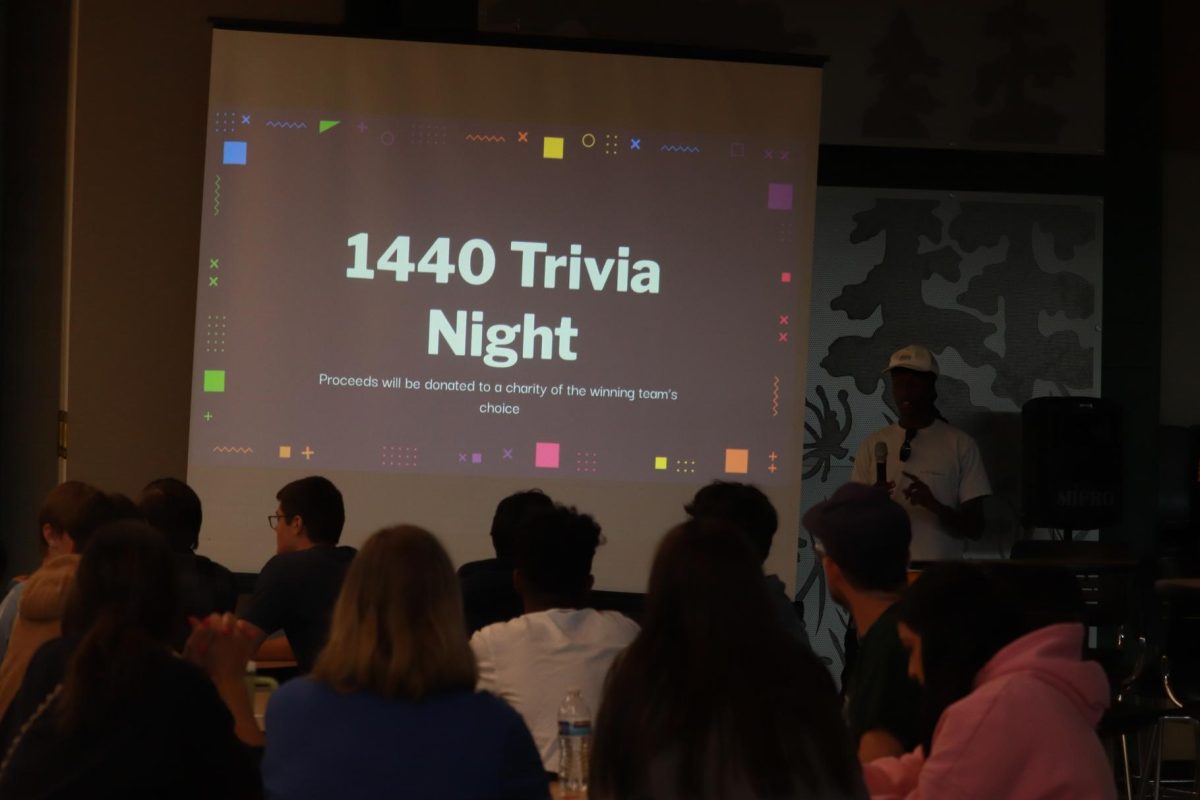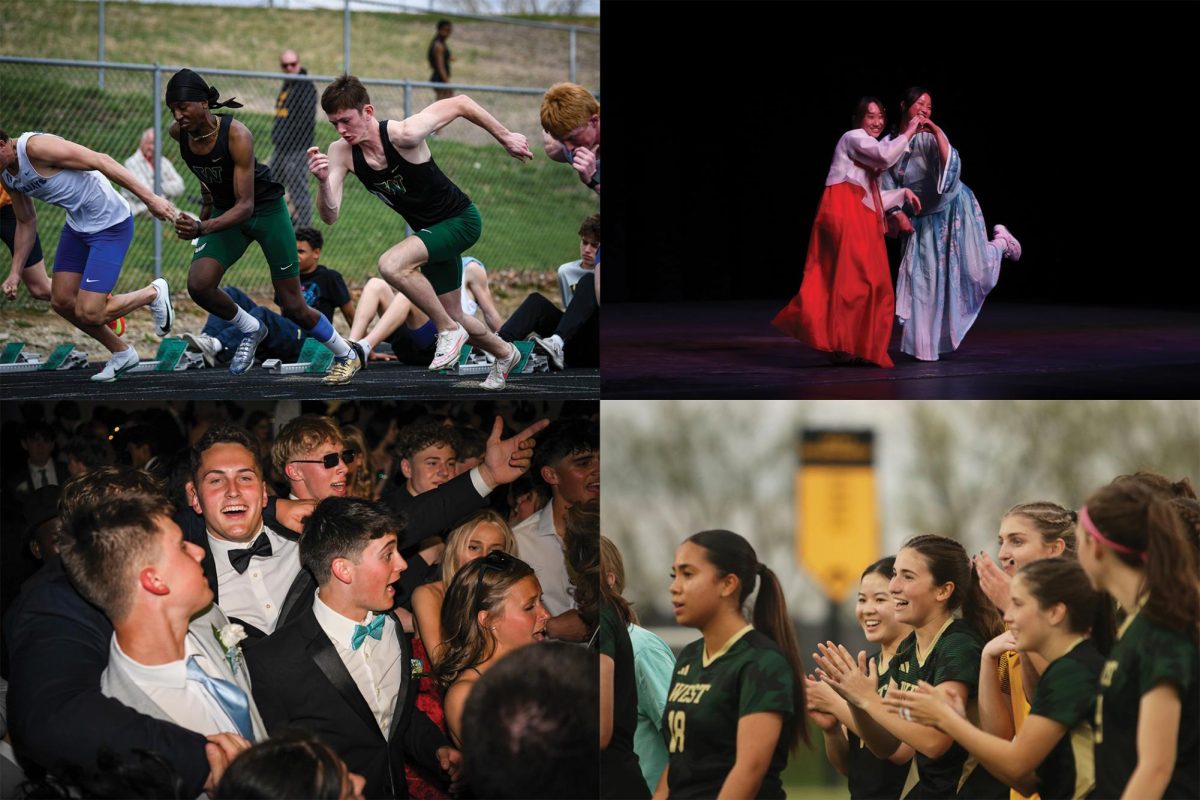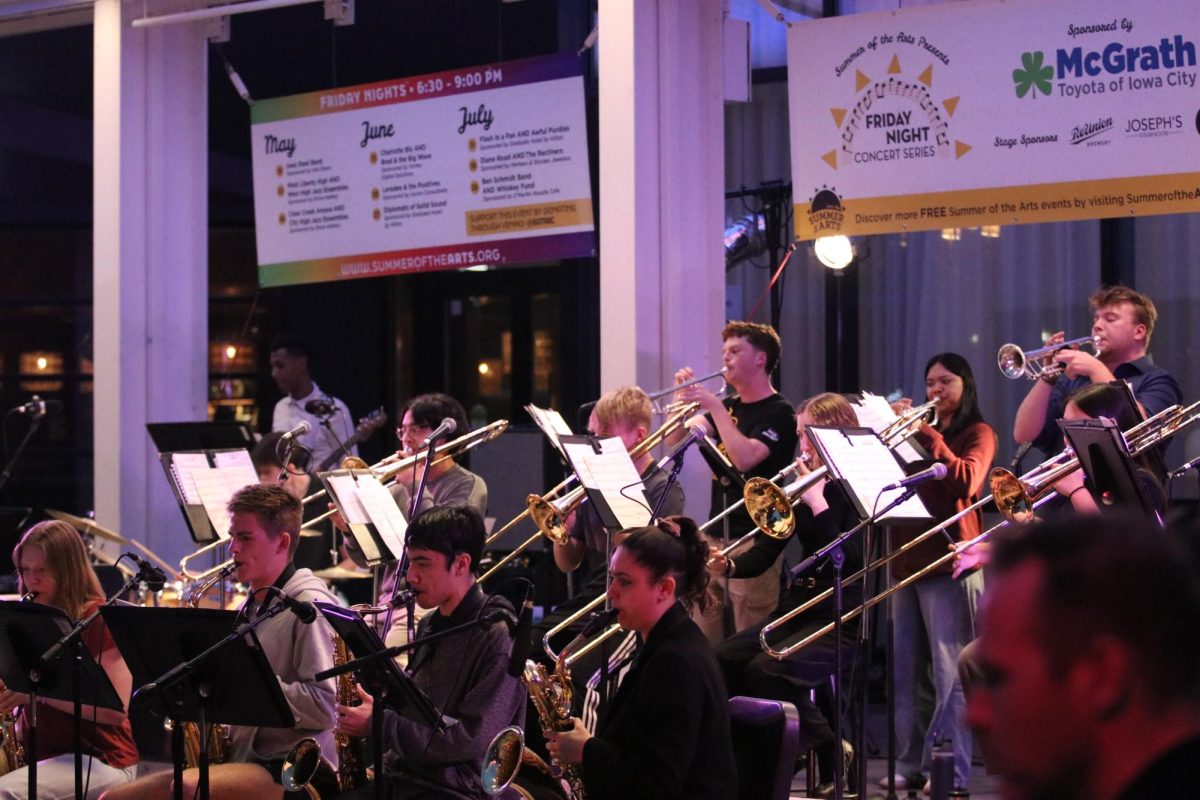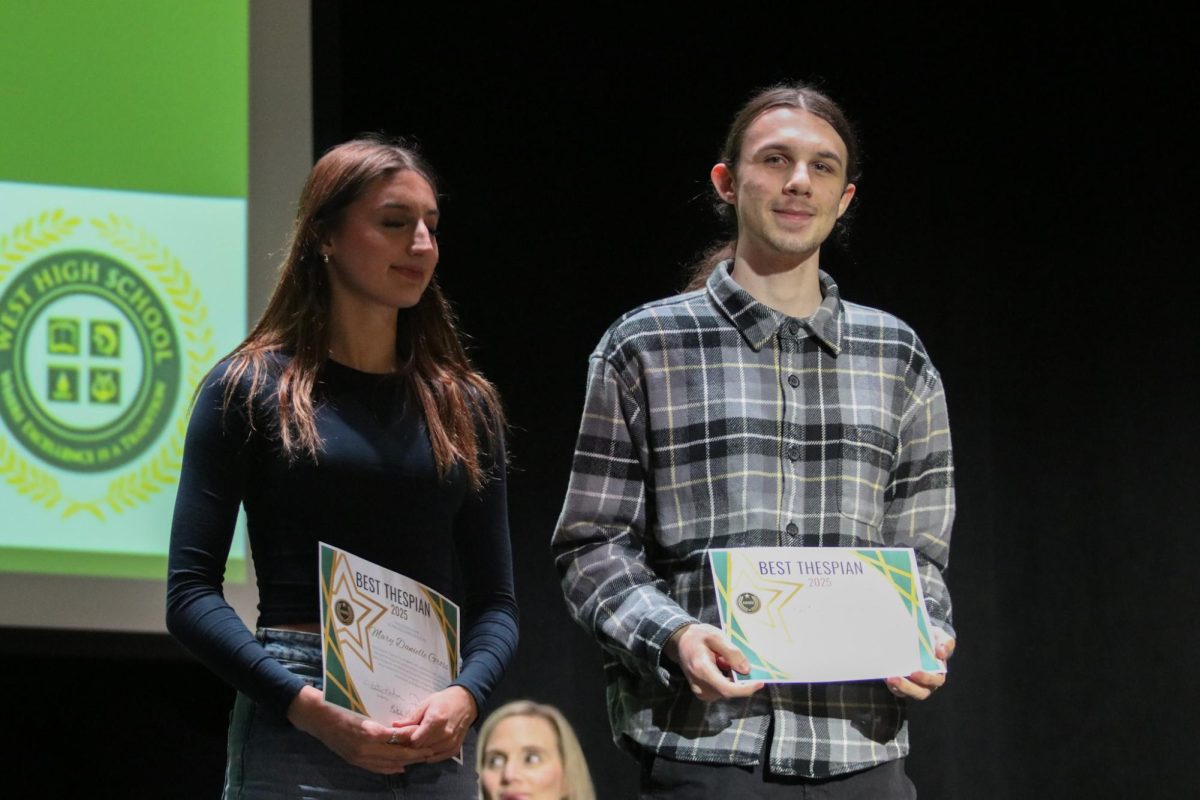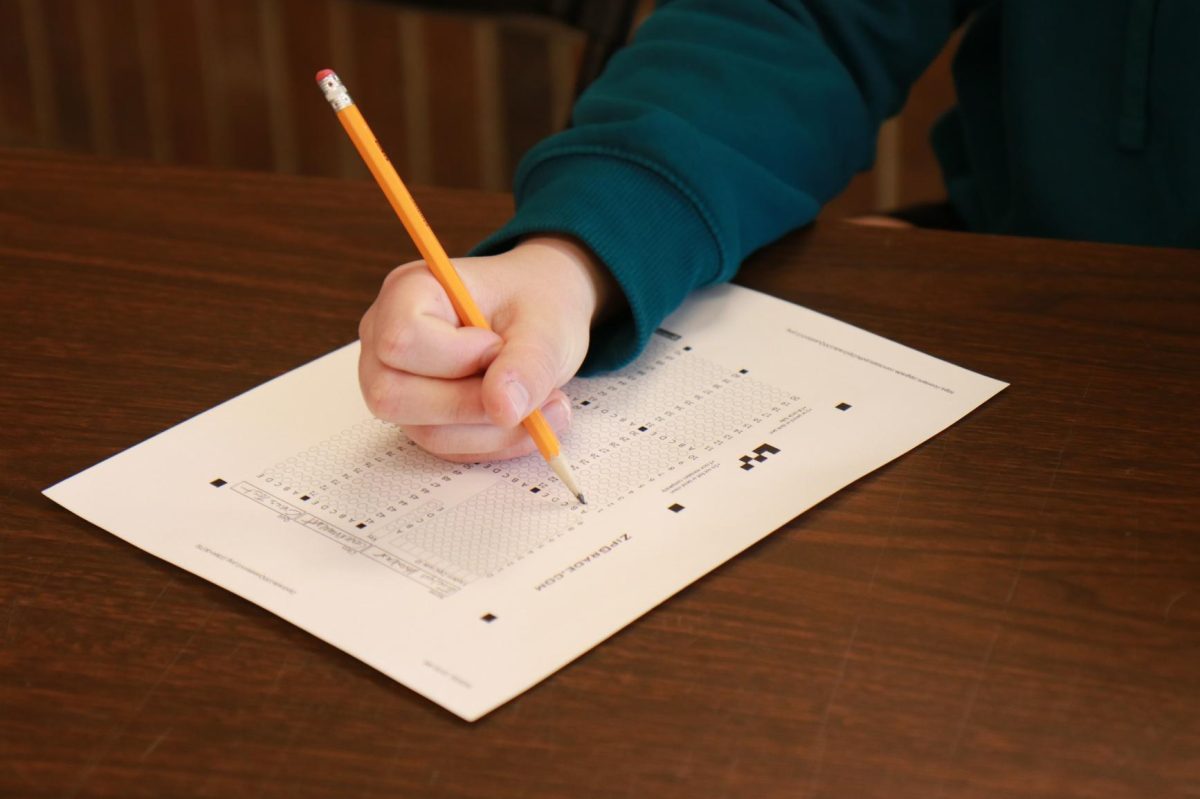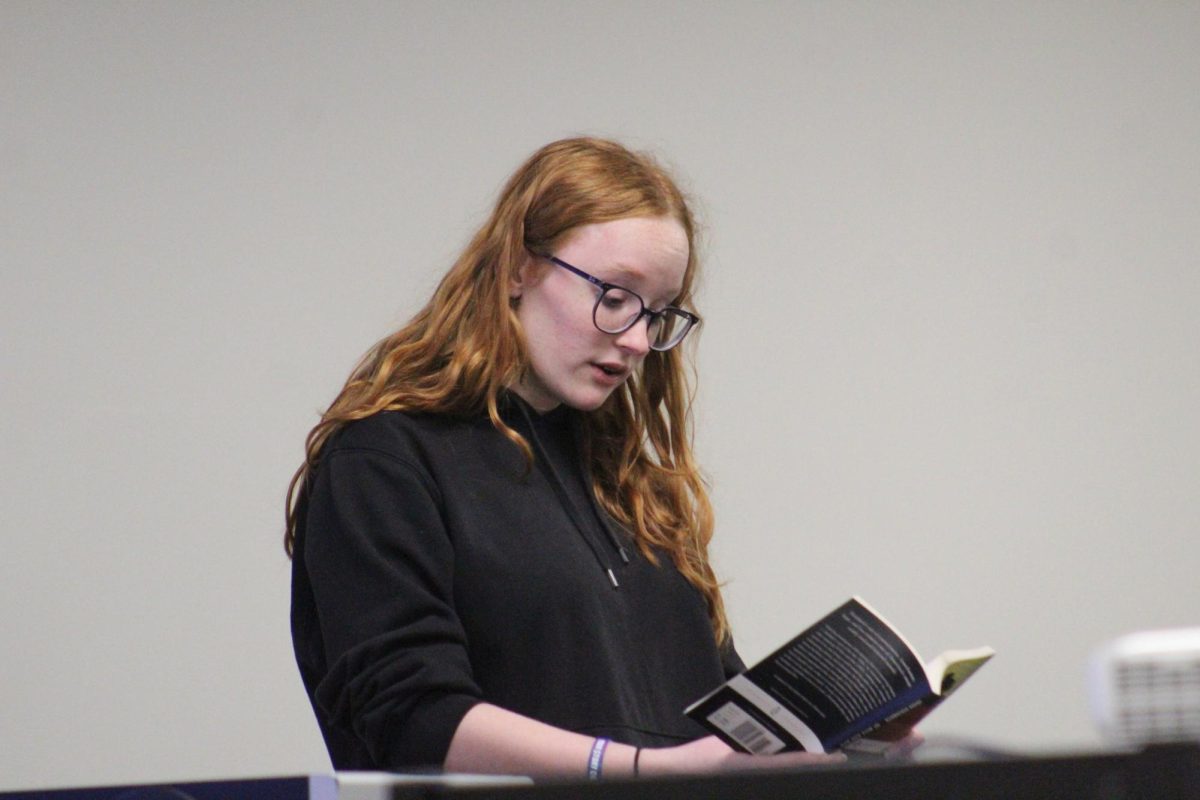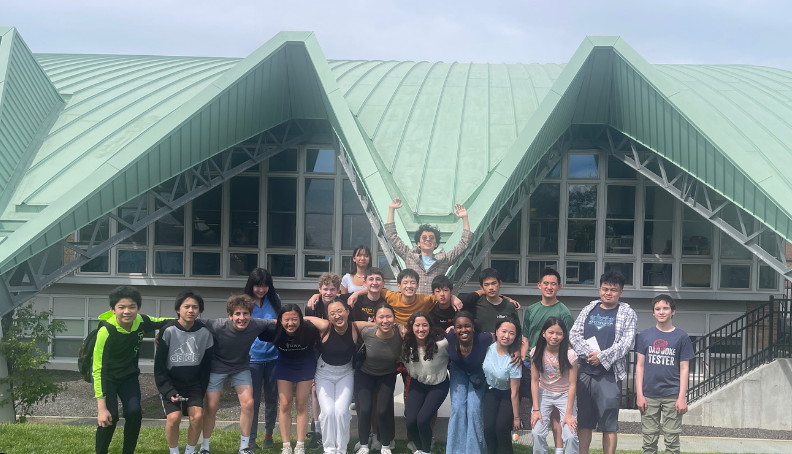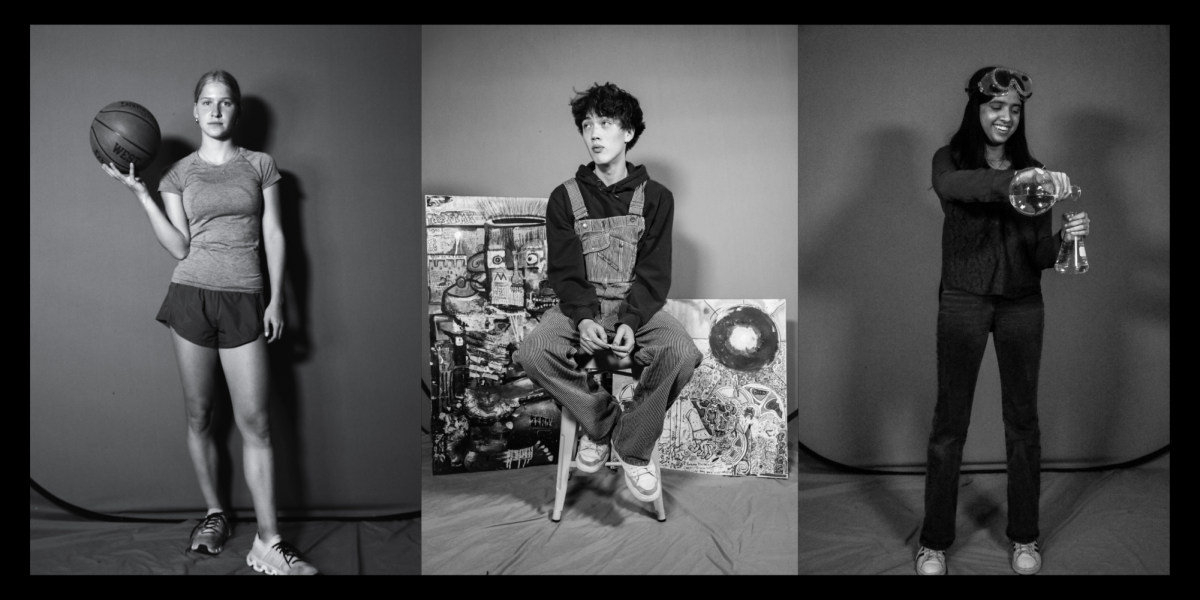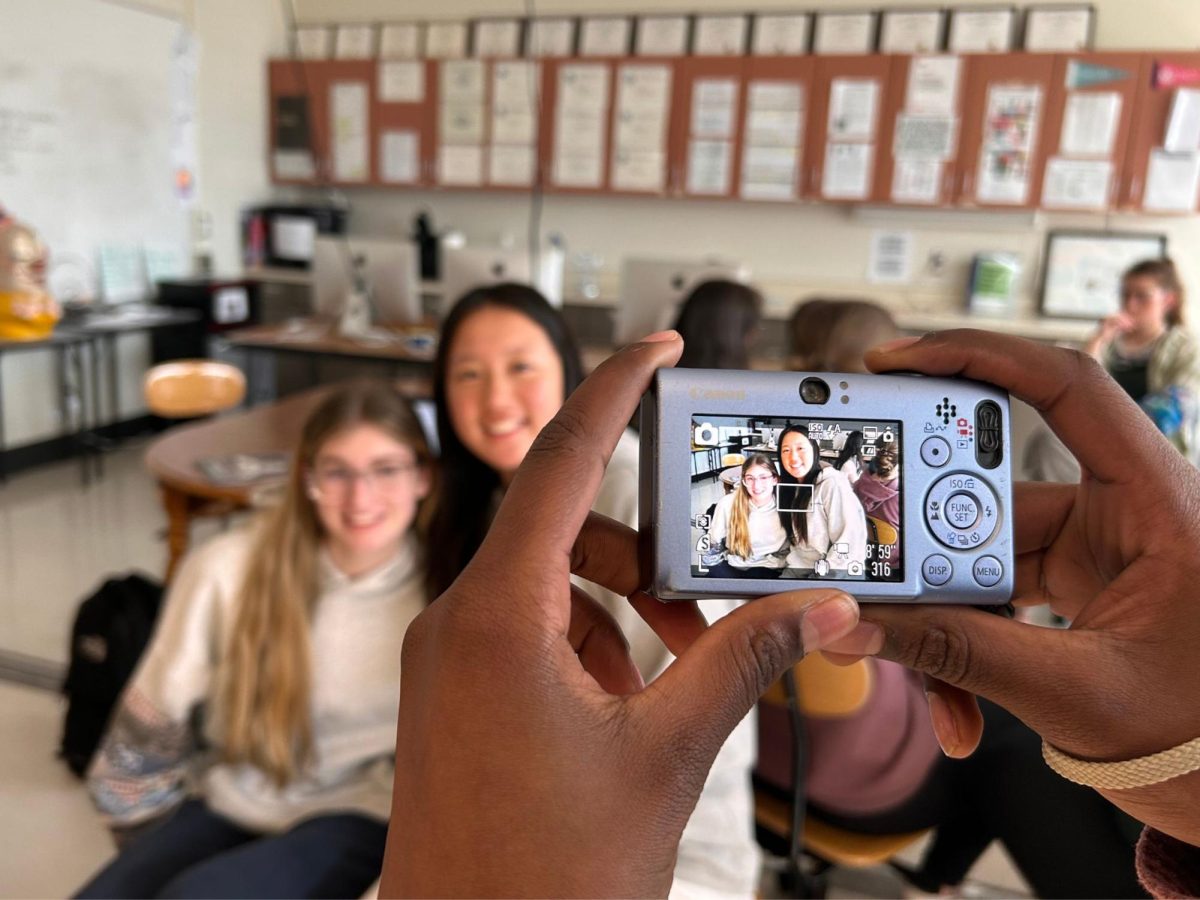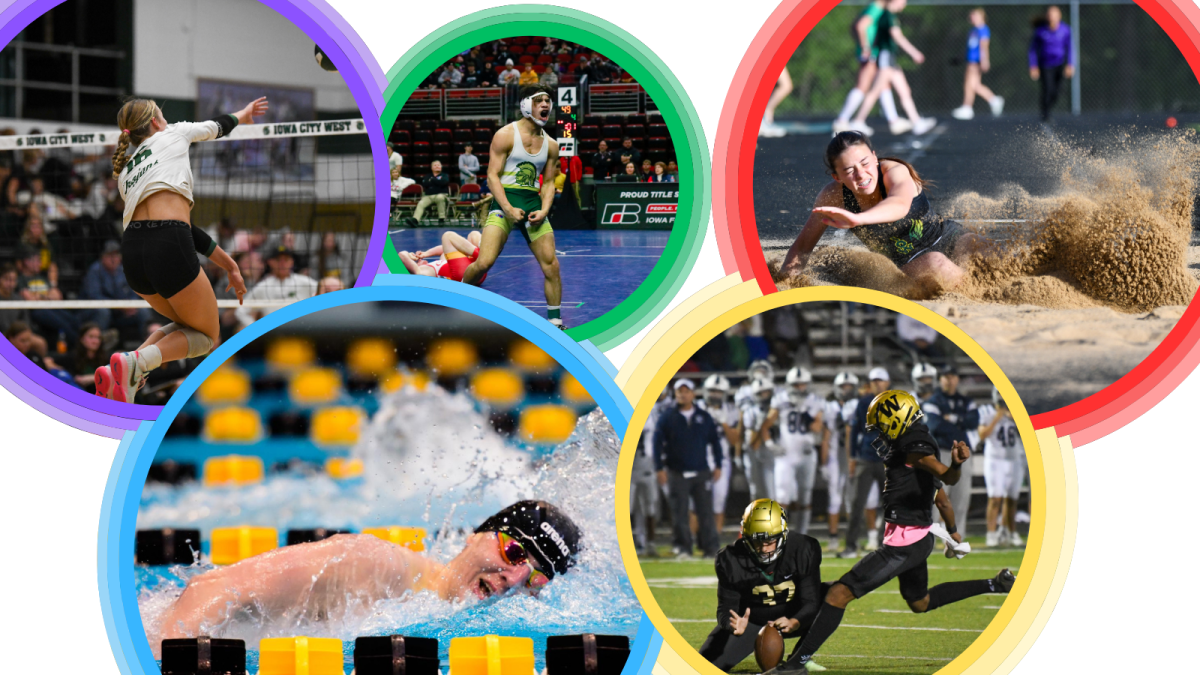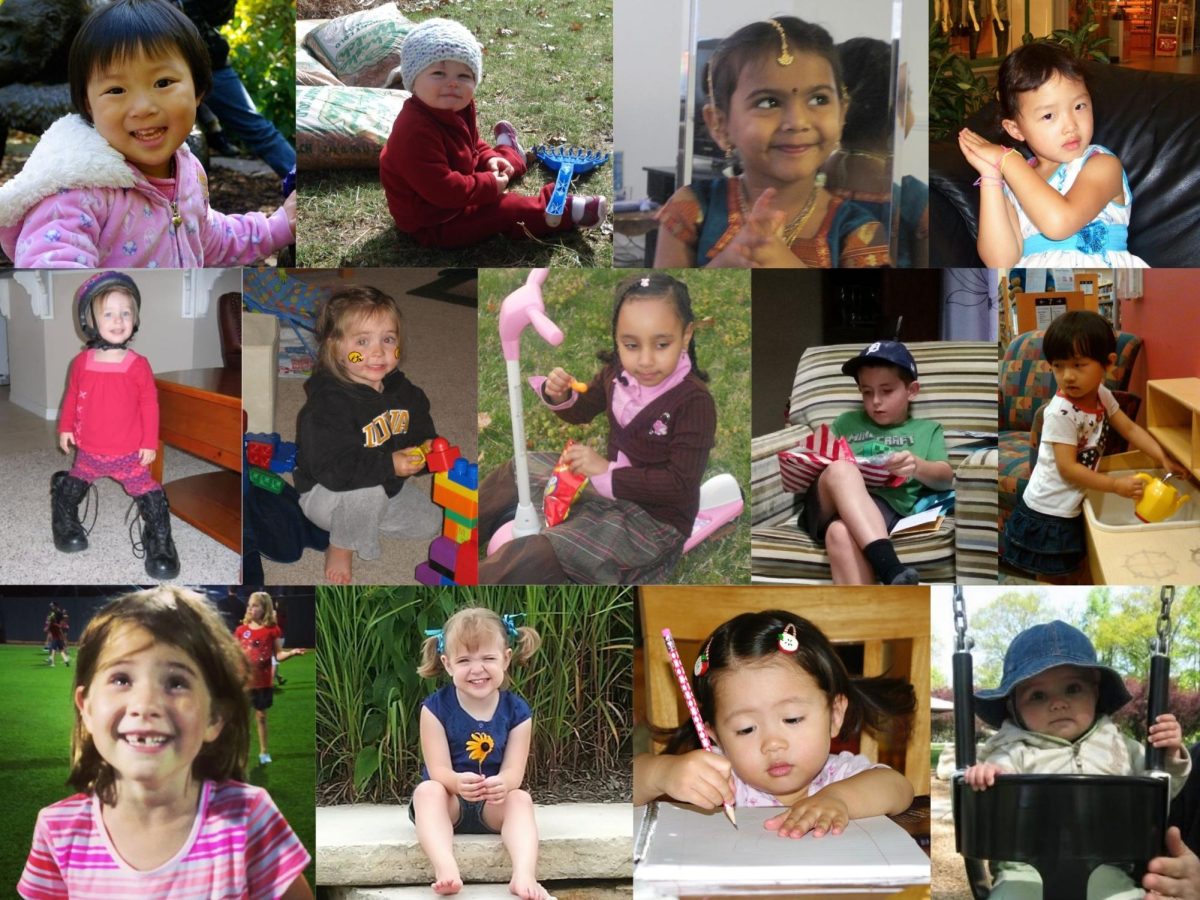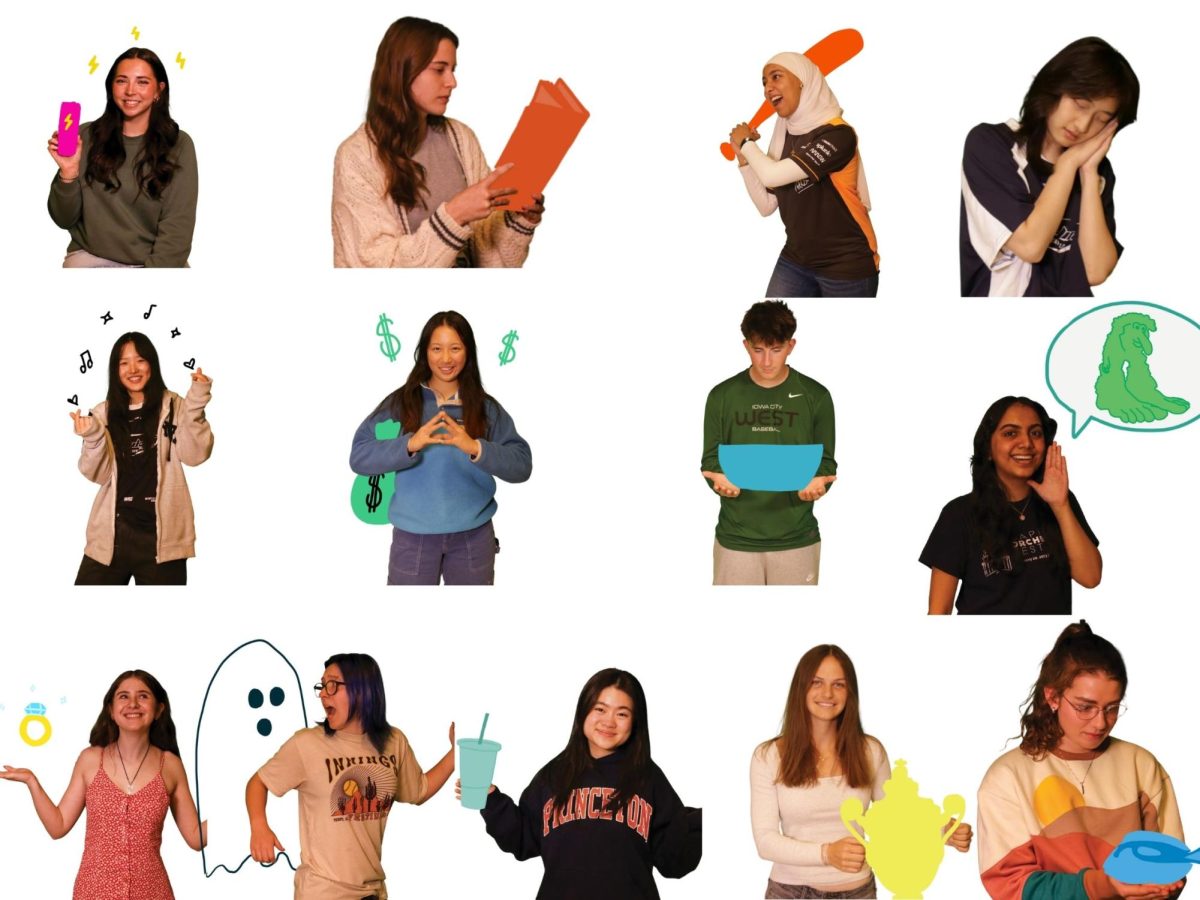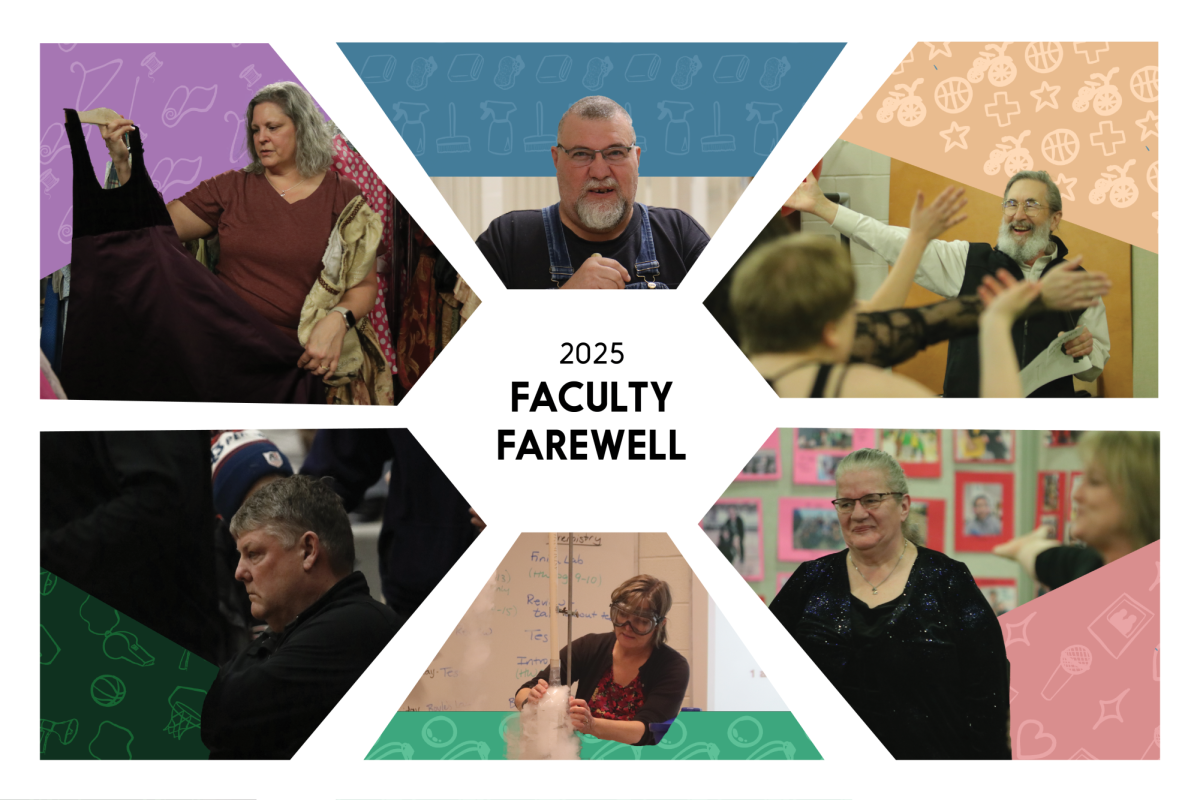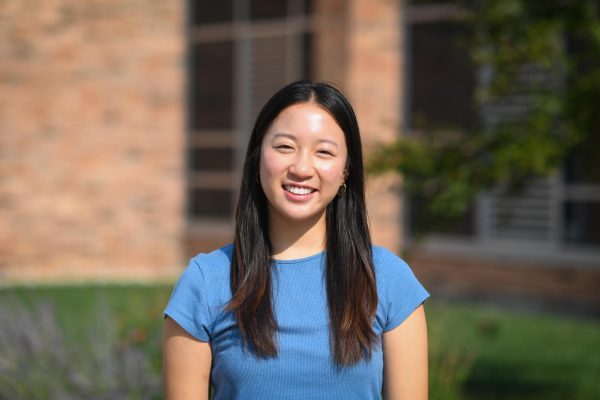It is 30 minutes before sundown. The weather is cloudy; it is a very gray and bleak day, with Iowa bidding goodbye to the last winter flurries in April. Inside West, however, the cafeteria was vibrant and bustling with children, students —Muslims preparing to break their fasting and non-Muslim students in observation— and mothers unraveling their traditional African and Middle Eastern dishes while wrapped in beautiful abayas — adorned in gems and a variety of colors — themselves.
As the time ticked closer to 7:33 p.m., the West High Cafeteria slowly filled with those participating in the holy month of Ramadan and those who have come to learn more about the religion. Over the past week, students from The Miriam Girls Club (MGC) and The West High Arab Student Union (ASU) hung posters around the school, inviting the West Community to celebrate Iftar. Iftar is the meal that signifies the end of fasting for the day.
Ramadan is the ninth month of the Muslim calendar. Following the Quran, Islam’s holy book,
Ramadan is the month of fasting from sunrise to sundown until the next appearance of the crescent moon. This is also the month to reflect on oneself, pray, practice faithful intentions and connect with God. Suhur, the meal before dawn, follows Iftar the next morning, beginning with Fajr, the day’s first prayer. Muslims pray five times daily during the holy month and end by reciting the Tarawih, the prayer performed at night.
Vianna Qadoura, the sponsor and leader of MGC, welcomed guests and inaugurated the event by speaking of the value of Ramadan and Iftar.
“In this holy month of Ramadan, it’s all about teachings of sympathy and empathy. It is about bettering our souls and our community as well,” Qadoura said. “One of the ways to better our communities is to bring them together to the same table and break bread… and bond in different ways, beyond our differences and just be there as one community, one supportive community.”
Dishes from Sudan, Palestine, Egypt and Turkey filled two long tables. The steam of savory wafts, intertwined with the sweet scents of the deserts laid out nearby. Like every Iftar, volunteers passed out bottles of water and dates for the guests. Muslims break fast with dates, a tradition that allows for a boost of instant energy when feeling weak. While people settled their stomachs with the sweet dates, Muslim students prepared prayer mats on the other side of the cafeteria. Taking 10-15 minutes before the second meal, children and adults lined up in rows, following the leader in a prayer.
When the plates were licked clean, and the chaos of excitement died down with full stomachs, Qadoura shared what sparked the idea of hosting this event.
“I run the Miriam Girls Club, and I have been trying to advocate for our girls, to empower them, help them and support them anytime and anywhere they need me,” Qadoura said. My daughter is part of the Miriam Club, and she sees me all the time, hosting different events and bringing communities together. So she and Jinann entertained the idea, and I gave them full support.”
Despite the large turnout and tables of food, the planning only took around 10 days.
“I [asked] committee members to sign up to cook different and diverse foods and sent out invitations for the school district, the superintendent, the principal, and staff members,” Qadoura said. It’s really beautiful to see them all come together, and we had a hugely successful turnout.”
Principal Mitch Gross is proud to have West host Iftar and to see students show off their culture.
“Hopefully [this event] is an example of our inclusivity here at West. We have many different religions that make up our student body, and our Muslim students are a very important and significant part of our West High family,” Gross said.
Jinann Abudagga ‘25, one of the lead student organizers of West’s Iftar, believes that sharing such a tradition with the community is crucial for a Muslim student’s self-identity. Abudagga expects this dinner to be the first of many, and become a yearly tradition at West.
“It’s important to hold events like these because [living] in a country where Islam is a minority religion, many of our traditions are lost or forgotten. But, if many of us come together, we can keep the traditions going,” Abudagga said.
Qadoura also notes that hosting such an event will inspire young Muslims to find their voices and advocate for themselves and their culture while living in America.
“Regardless of your identity, or your background, you have to put yourself out there for [others] to know who you are. We cannot play the victim mentality and say ‘They don’t know us’ or ‘They treat us badly and discriminate against us.’ Sometimes, you have to be out there and do the work for them to learn more about you and to see you as a human who is willing to share yourself with them,” Qadoura said. “So I tell [my kids]: Don’t be fearful. If you have a sincere intention and goals, put it out there and work hard.”
After reflecting over the night, Qadoura is grateful to have been able to share her religion with those unfamiliar with Islam.
“In the holy book, it says, ‘We created you in different nations and tribes to get to know each other,’” Qadoura said. It’s like a big puzzle: You have to be colorful, and we have to be different shapes and sizes, and we have to put them all together to make that beautiful big piece. This is how [the Muslim students] have to see themselves, that they are part of the bigger picture and that they have to do their part to stay in the bigger picture.”
